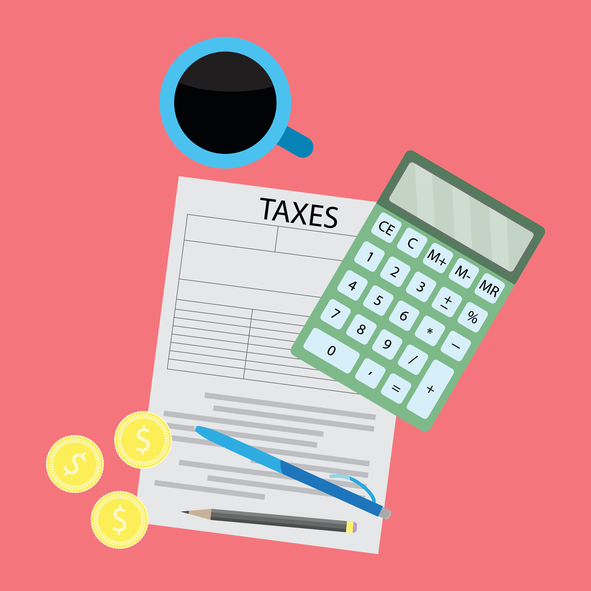Tax Saving Tip for the Self-Employed, Part II
 Last week we received good feedback for our article on reducing the tax bill for contractors and self-employed individuals through tax free allowance and not paying your National Insurance once you have reached the retirement age. This is why we want to continue the theme this week and explore other legal and honest ways to reduce your tax bill.
Last week we received good feedback for our article on reducing the tax bill for contractors and self-employed individuals through tax free allowance and not paying your National Insurance once you have reached the retirement age. This is why we want to continue the theme this week and explore other legal and honest ways to reduce your tax bill.
Home expenses
Many contractors and self-employed entrepreneurs start their business from home. Naturally, you are allowed to include a certain proportion of home expenses (electricity, gas, and a percentage of your mortgage or rental cost) as a genuine business expense. There are no hard and fast rules regarding what you can claim as a reasonable deduction as everyone’s arrangements are different. However, the key is to ensure a reasonable argument can be made for the basis for any calculations. For example, it is rather foolish to claim a deduction for 2 to 3 Starbucks coffees per day while you also claim an allowance for being at and working from home 5 to 6 days per week.
Smaller Allowances Add Up
There are many smaller allowances which go unclaimed but they can add up and benefit your overall tax bill. Two examples are deductions for eye test and the approved schemes for using a bicycle as your mode of transport. Another one is claiming millage when you use your car, motorcycle or bicycle on company business. 45p, 25p and 20p are the maximum rates per mile that companies can pay or business owners can recoup without tax being paid for the use of one's own car, motorcycle or bicycle. One exception to this is that National Insurance arises if you exceed a certain number of annual business miles per annum, but realistically this will not be reached unless you are a full time sales rep on the road.
It is also important to note that the Tax Authorities can be particularly picky regarding the distinction between business and personal millage when using your own vehicle for both. It is therefore advisable to keep a mileage log that records of all business journeys taken, then they can be clearly differentiated from miles driven for personal purposes.
At TaxAgility, we always strive to give the best tax advice that is unique to your circumstances. This is why we always offer our first consultation for free to allow us to learn about your business and your personal financial circumstances, so we can create a tax accounting solution that is as unique as you.
Call us now at 020 8780 2349 or complete the enquiry form and we will call you back.
Tax Saving Tip for the Self-Employed
 As chartered tax accountants, tax is a topic which we discuss with our clients on a daily basis. In this day and age, almost all of our clients know they can go to the Internet for tax advice, but often what they get is generic information. Case in point: there are plenty of materials on the Internet advising how a self-employed person can reduce their tax bill and most of them usually begins with, “check your tax code…” – but hardly anyone mentions tax free allowances or even how pensioners can be exempt from National Insurance when they become self-employed. This is why we’ve been motivated to write this post, with the aim of highlighting these often overlooked areas:
As chartered tax accountants, tax is a topic which we discuss with our clients on a daily basis. In this day and age, almost all of our clients know they can go to the Internet for tax advice, but often what they get is generic information. Case in point: there are plenty of materials on the Internet advising how a self-employed person can reduce their tax bill and most of them usually begins with, “check your tax code…” – but hardly anyone mentions tax free allowances or even how pensioners can be exempt from National Insurance when they become self-employed. This is why we’ve been motivated to write this post, with the aim of highlighting these often overlooked areas:
Tax Free Allowance
A married couple have a tax allowance each and some arrangements can maximise the total benefit of this. Let’s take a common scenario where one spouse is an entrepreneur and the other is staying at home to bring up the children. The stay at home partner could be allocated tasks from their husband or wife’s workload, and be paid from the entrepreneur's business for doing so. This could provide the stay at home partner with an income that is effectively tax free if the income is less than their annual Tax Free Allowance. Similarly, the Entrepreneur can use the payment as a deduction from their taxable income, possibly reducing their tax bill too. This win-win situation is legal, but often overlooked by entrepreneurs and small business owners.
Self-Employed After Pension
We have seen many pensioners going on to set-up a small business which helps to keep them active, mentally and physically. If you fall into this category, i.e. you’re still working beyond the Government’s official pension age, you should cancel any National Insurance payments to HMRC. Continuing to pay into the scheme will not make any difference to the state pension that you are entitled to. However, you do need to make a formal application to HRMC about this. The UK government has been making radical changes to the state pension ages. To find out your current pension age, click here. And, in 2020, the state pension age is to be increased to 66 for both men and women.
At TaxAgility, we believe in delivering a highly-personalised tax service to our clients. This is why we always offer our first consultation for free to allow us to learn about your business and your personal financial circumstances, so we can create a tax accounting solution that is as unique as you.
Call us now at 020 8780 2349 or complete the enquiry form and we will call you back.
7 Key Steps to Growing A Business Online (Part 2)
 Last week, we discussed if passion could translate into a good business, the processes of defining what you want to sell and using the Keyword Tool to do research. Now we shall cover the other four points:
Last week, we discussed if passion could translate into a good business, the processes of defining what you want to sell and using the Keyword Tool to do research. Now we shall cover the other four points:
- Red Ocean or Blue Ocean
This is where reality sets in. Through your research you may be excited to learn that few people or companies offer what you plan to offer. This could be great news, as it may represent a wholly unique opportunity - a ‘blue ocean’. Or, as is highly likely, you’ll find a lot of competitive activity in the space - a ‘red ocean’.
The distinction between red and blue oceans comes down to one thing - competition. A red ocean simply represents a market where competition results in ‘metaphorical blood in the water’. It’s a market that may be price sensitive with little margin to be made, or one where larger company dominate - sharks.
On the other hand, a blue ocean represents a space where there is little competition and you are free to explore and test your ideas. Beware though, blue oceans also have their dangers, rather like being cast adrift with no land in sight (like your ideas are so obscure that they don’t create a demand). Blue oceans require a wholly different strategy, because you are essentially creating your own market or building on a ‘nascent’ need - a need that people are only just becoming aware of. These of course, are the most exciting and potentially the most rewarding and is why the research is so important.
The outcome of this exercise will bring in to sharp focus the job ahead.
- Develop a marketing plan
At the risk of being clichéd, we’ll use a cliché here: “Failing to plan is planning to fail”. In the online world this is particularly true because ideas and business can be destroyed very quickly if you haven't thought through how you plan to reach your market audience and fulfil their need.
Basically, you need a marketing plan. It’s a painful but worthy exercise. Again, whole books are dedicated to this, so we’ll be brief here. Your ‘online’ marketing plan should at a minimum accomplish the following:
- Identify your audience, how you can reach them (email, search engines, auction sites, blogs, Youtube, social media, etc) and what ‘information’ they will respond too.
- Identify your competitors, if there are any, learn from them. Try to figure out how they became successful and what they did to achieve it.
- Outline your digital marketing strategy - what you need to build to reach your online audience. Examples include a website, a social media presence (and which ones).
- Identify the type and form of content you need to create to appeal to your audience and engage them.
- Outline how do you plan to advertise and what budget you have. Many options include ‘pay-per-click’ and ‘display advertising’ with Google Adwords Facebook, Twitter, LinkedIn, Instagram, among others. You don’t always need to pay for advertising though; creating awareness through social media and other people’s blogs of valuable content on your own venues, can achieve the same end result.
- Set some KPI’s (key performance indicators), such as: number of website visitors, response rate to emails, conversion rates (this might be actual sales).
- Learn how to analyse your performance and the actions of your audience
If you are using a website or social media, each has its own tools to analyse who interacts with you on-line. In the case of websites, Google analytics provides a wealth of data as to how many people and how they interact with your site; and it’s free. Others, such as SEMRush, are paid tools, but allow you to track your entire online performance - from keywords to social activity.
Using data in this way will help you adjust to the feedback implicit in how people use your website or social venue. It also allows you to monitor the performance of your advertising campaign. If you are an advanced user, you can also conduct tests to determine which ads perform better and adjust accordingly.
If there’s one aspect of an online business that sets the winners apart from the losers, it’s the ability to analyse and interpret the wealth of data at your disposal through these tools - it can help you beat your competition.
- Review regularly and don't be afraid to change
Change is a constant in the world of online business. Online customers are fickle, technologies are changing all the time, as are search engines and the way people use social media. Adapt quickly by being aware.
Your end game maybe to sell product or services, but your goal should be to attract and engage your target audience. To do that you need to create a unique experience around what you have to offer. This is done through great content and content marketing. People share, and you want them to share your experience as this drives brand awareness and customer loyalty.
Best of luck to your online business.
